Last year, I started wearing glasses for the very first time. I remember walking out of the optometrist’s office, struck by how I could see everything SO clearly. The Autumn leaves grasping at their branches were no longer a collision of fiery, Pollock-style brushstrokes. I could see each individual leaf. My vision was HD, and it was AMAZING!
Amazing until… I looked in the mirror later that evening. Whaaaaat?! Were those CROW’S FEET around my eyes? Surely not! Yet, as I stared at my reflection, there they were, glaring right back at me. Even my “resting face” now contained a permanent (albeit subtle) crease in the fabric of my forehead. My initial awe quickly shifted to dismay as I realized that not only could I see the things I loved with new-found clarity, but also everything I’d rather not!
Over the last few weeks, following the murder of George Floyd and the subsequent Black Lives Matter protests taking place around the world, there has been an outcry in our own country against racism. As you may well know, social media has been ‘lit’ with pupils and alumni around the country speaking out about their experiences of racism at their schools, and simultaneously, pleading for change. Profiles have been set up on Instagram and hashtags have been trending. Many of these schools have responded and those who have “fallen short” under the magnifying glass of social scrutiny have gone viral for reasons they wish they hadn’t. If you have seen this, heard about it or been following it, and particularly if you are a white South African (like me), you may have been thinking: It’s been 26 years since the 1994 elections! Can we STOP talking about racism and just MOVE ON already!? But therein lies the question: why, 26 years later, ARE we still talking about racism and have we, as a nation, really come so far since 1994 that we no longer need to?
Seven years ago my husband, Ross, and I moved to England. We had only been there for four days when my cousin (who we were staying with) popped to the shops, with her two boys and a friend of theirs in tow. About half an hour had passed when a car, driving slowly, pulled up across the street. A tall, strong-looking black man was at the wheel. I eyed him suspiciously as he looked directly at the house for the next 10 minutes or so. What was he doing? Why was he staring? To my alarm, he got out of his car (he was even larger than I had expected!) and approached the house. I started to panic. The doorbell rang. “Don’t open the door!” I hissed at Ross. “I have to open it, Dan,” he replied. “What must I do? Just leave him standing there?” And so began an argument between the two of us in hushed, angry (desperate, on my part) whispers. Ross opened the door – despite my protests and only after the doorbell chimed persistently for the third time – as I fought back hot tears of both fear and fury.
“Hi,” the man said, with a confused but polite smile. “I’m here to collect my son, but it didn’t look like anyone was home. Then I saw you both in the lounge and realized who you were. Just thought I’d introduce myself.” The penny dropped, with a clang of shame and embarrassment, as I realized (still blinking back tears) that this man was the father of the [adorable, mixed-race] little boy who had come to play, and was now at the shops with my cousin and her children. Ross cracked a joke about being South African, adding something like, “We never open the door for strangers!” and our new acquaintance, Chris, laughed along (bless his heart.) There was, however, nothing funny about the situation. In fact, it really bothered me and I found myself wondering over the next few days and weeks:
- If Chris was white, would I have had the same reaction?
- If, indeed, my reaction had been different, why would this have been so?
- Did I have an inherent distrust of black people (men, in particular?)
- Having experienced a home invasion two years prior to this incident (I was home alone at the time and TERRIFIED) as well as other, petty crime at the hands of men of colour, was I in any way justified, based on these experiences, to feel immediately fearful and/or distrustful of a black, male stranger?
I wrestled with these questions, and couldn’t quite determine all the answers. All I could say for sure was that had Chris been white, my behavior likely would have been different*, and it unsettled me hugely to realise that my fear of this black man, along with my instant suspicion of his character and motives, was unequivocally based solely on the colour of his skin.
Race and, by implication, racism, is such a sensitive topic for many of us living in South Africa. I think most white South Africans feel exhausted by the consistent, collective narrative we hear of apartheid, oppression and race. We may wonder why the country keeps “dredging up the past”, why people of colour “keep pulling the race-card” and why we seemingly never move forward as a nation. If there was a way to move forward, would you embrace it? I know I would! But what if this required work from all of us, perhaps especially me and you? What if it meant confronting, listening to and even making changes in our lives as a result of the abovementioned narrative which we so often try to avoid, or ignore?
Now, please don’t get me wrong. I’m not saying that the onus rests solely on white South Africans to fix the problems in our country. I believe we all have work to do! However, I cannot control what everyone else does. I can only look at ways in which I, in my small corner, can improve and contribute towards a healthier, happier society. And, as a white South African myself, I think that unfortunately, too many of us aren’t ready – or willing – to engage in the very conversation that others need us to, in order for our nation to move forward.
After the ‘incident’ with Chris, I began to reflect on – and question – my thoughts around race and racism. I was just 4 and a half years-old when our nation’s first democratic election took place in 1994. I don’t remember a society in which people of colour were segregated from, or had fewer human rights than, white people. I have always gone to school with children of all races (even when I began pre-school the year before the elections, in 1993.) One of my best friends during high school, and still to this day, is black. I don’t dislike, or hate, anyone based solely on the colour of their skin! Surely this means I am not – and cannot – be racist? I turned to Google (where else?) for a bit of clarity and began to dig. So began the rabbit hole…
The Oxford Dictionary defines racism as, “The inability or refusal to recognize the rights, needs, dignity, or value of people of particular races or geographical origins.” Do you see that this definition does not include – or even elude to – the word ‘hate’? It instead indicates – maybe to our surprise? – that racism can be evident in ways far more subtle than the most obvious, overt forms that many of us acknowledge as being racist.
So am/was I actually racist? I began to consider whether I:
- treat everyone equally?
- believe every person is of equal value?
- truly honour and respect the dignity of the people of colour around me?
At first glance I would probably have answered ‘yes’ to all these questions. However, as I started a (highly uncomfortable!) process of deep introspection in which I interrogated my thoughts, words and actions, I arrived at the painful conclusion that I could not answer a wholehearted, honest ‘yes’ to even one of these questions.
When we suddenly have clarity in any area of our lives, we discover that this new ‘light’ shines brightly, illuminating exactly that which we previously could not – or did not want to – see. Just as my new glasses had given me ultra-clear vision which highlighted absolutely everything I hadn’t seen before (whether I liked it or not!), I found that as I tried to gain a deeper understanding of racism, not only did I begin to see instances of racism around me, I could also – heartbreakingly – identify examples of racism within me. Searching the darkest corners of my mind and heart, I recognized, for the first time, an ugliness lurking in the shadows that I had never noticed before.
I had always believed that I “didn’t see colour.” I felt that anyone who did should try their hardest not to! Now I realized that, clearly, I did see colour. And even if I truly was “colour blind,” I’ve now learnt that this, in itself, is a form of racism. Christian hip hop artist Jason Petty (or Propaganda as he is better known) summarizes this eloquently: “[Color-blindness] communicates that my distinctions don’t matter, right, which would mean that my identity doesn’t matter… and that’s confusing to a young Black man, because you’re telling me my identity doesn’t matter, yet I’m being treated a certain way because of this identity.”
My (previously mentioned) black bestie, Ntokozo, elaborates on this. “Growing up,” she said, “I hated my skin, my hair, my nose, my body shape. I would overhear my light-skinned friends being complimented on their beauty, and I wished, more than anything, that I could be like them. I prayed, asking God to change how he had made me. I believed I was not beautiful. I was often told, ‘Your English is very good,’ and as a little girl, I felt a sense of pride whenever someone said this. However, as I grew older, I realised that it was not my fluency of the English language people were referring to, but rather the way I spoke it. I realised that many white people assumed that because I pronounced my words like they did, I was more intelligent than some of my black friends or family members, who spoke English with an ‘accent’.”
She continues, “When I introduced myself to new people, I was often told my name was too hard to pronounce. This left me feeling embarrassed and awkward about my name, so I started to introduce myself by my nickname, TK, which I don’t mind being called by my friends. With that said, I would at least like people to make an effort to say my name when I introduce myself as Ntokozo, instead of simply dismissing it and asking what nickname they can call me. Although nicknames – for white people – can be a way to show endearment, the greatest compliment / show of respect that one can give me is to call me by the name that my mother gave me; the name that is a symbol of my identity and shows what my birth meant to my family. This name has shaped who I am (Ntokozo means ‘joy’, by the way.). As a young teenager, I began to believe that if I could ‘lose’ a lot of my Zulu culture and mannerisms, I would be more readily accepted by those in my (predominantly white) community and as a result, go further in life. However, in ‘discarding’ this part of my identity, I lost a huge part of who I was and who, I believe, God created me to be.” The sad reality is, even as one of her closest friends who loves her dearly, it had never occurred to me, especially during our school years, that I was an active ally to the ‘dominant norm’ of our society, by which she felt oppressed. And by choosing not to “see colour” (in an effort to be accepting of everyone, regardless of their race) I was, in fact, unintentionally invalidating and/or choosing not to see the very real experiences that she – and other people of colour – have because of their race.
And so, upon self-examining and acknowledging the “ugly” I could now – finally – see within me as a result, I cried many, many tears. As someone who had never, ever considered myself as racist, I was devastated to realise that despite my best intentions, the ideals I wholeheartedly believe in and, yes, even having a black bestie, I, in fact, was. Have you heard of the terms, “white fragility” and “white tears” before? They’ve been used a lot in recent weeks especially, and both allude to the discomfort and defensiveness on the part of a white person when confronted by information about racial inequality and injustice. Yet the tears I cried were not due to mere discomfort; they were a symptom of grief as I somewhat “mourned” the loss of the person I had always believed I was.
I am not alone in this. As the focus of our nation has once again steered to racism in recent weeks, friends of mine – people I hold close to my heart – have cried, as they, too, have introspected and finally seen, and acknowledged, the “ugly” within themselves. Last week, I sat with a friend who revealed her most intimate – racist, she had now realised – thoughts. “How could I have even have thought that?” she asked me, a mixture of anger and disgust evident in her voice and with tears streaming down her cheeks. “I mean, where did that even come from?!” It’s a question I have asked myself too. This ‘soft’, subtle racism is often so deeply embedded subconsciously in the roots of our beings, that we do not even realise that it is there until something unearths it, and then it becomes so obvious that we wonder how we never noticed it before!
I believe that this difficult, hugely uncomfortable – but necessary – process of introspection is needed from all South Africans – and I think it starts with LISTENING and genuinely seeking to understand one another. My two young sons were arguing earlier today – both wanted the other to hear his point of view. Eventually my youngest said, “Can you just LISTEN to me? You aren’t hearing what I’m saying, because you keep on talking!” There was something so apt about this interaction, and I felt it was symbolic of where our country currently finds itself, as well as society at large: many of us are desperate to be heard, but we aren’t as eager to listen.
True listening means to first stop talking for long enough to hear, really hear, what the other person is saying. If we are listening just so that we can respond to what’s been said, then we can’t say we are genuinely seeking to learn or understand. And if we aren’t eager to listen and understand and/or get defensive and make excuses and/or dismiss what others express about how they feel, well… can we truly claim to see and recognize the needs, dignity and value of others?
(I’m near the end now, I promise.)
My youngest son is black. He’s 3 years old, full of energy and SUCH a character! A few weeks ago, he said, “I wish I was white.” “Why?” I asked. “Because I think God made a mistake when he made my skin black,” he replied. After discussing this more in depth with him, my husband and I believe he feels this way because he’s now realized that he is the only one within our family who has black skin, and he wants to be white, like us. This, in itself, is heartbreaking and we will obviously continue trying to help him navigate these emotions, whilst also (hopefully) building his self-esteem. We love his black skin, and we hope that, one day, he does too. Yet, as sad as I am about his feelings, I believe it would be a far greater tragedy if, when he grows up, he despises the skin he’s in because of the way he is treated as a result of it.
The Bible speaks clearly about division/prejudice of any kind (including racism.) We need to remember that God created us all in His own image (Genesis 1:27) and we are precious in His sight (Romans 2:11; 10:12.) He asks us to love one another, as He loves us (John 13:34) and He desires for us to live in peace; peace which can only come from seeing others as Christ does: He sees us as valuable – so valuable that He died for us all! Ephesians 2:14 says: “We have peace because of Christ, who has made both one. He broke down the wall that divided them by His death on the cross.”
Michelle Obama says, “If we ever hope to move past [racism], it can’t just be on people of colour to deal with it. It’s up to all of us – Black, white, everyone – no matter how well-meaning we think we might be, to do the honest, uncomfortable work of rooting it out.” For me, personally, I feel like I’ve come a long way, but I’ve still got a lot to un/learn. As Ijeoma Oluo says, “The beauty of anti-racism is that you don’t have to pretend to be free of racism to be an anti-racist. Anti-racism is the commitment to fight racism wherever you find it, including in yourself.”
This may have been a difficult read – it was difficult to write! And I wouldn’t have chosen this topic if I didn’t believe it was important. My hope in sharing this is that we all, as a nation, take the first step to LISTEN to one another. Like, really listen. We may find that we share far more in common than we realise, including that behind the anger and hurt many of us feel, there is fear: fear of crime; fear of loss; fear of not being valued and fear of our children being limited in life due to the colour of their skin. I think this is such a real concern for so many South Africans of all races and for very different reasons (I resonate with a lot of these reasons, as the mother of both a white child and a black child.) The problems within our nation are layered and complex. Our nation needs healing! So let’s show empathy. Let’s actively make an effort to understand one another. Let’s work hard to recognise, and honour, the dignity of others. Let’s love each other. Genuinely. Wholeheartedly. Let us shower one another with kindness. Let us aim to do better for our country TOGETHER. This is – and can only be – the way forward for South Africa.
*Free lesson on white privilege included. 😉
THANK YOU, Kate, for this amazing opportunity! I am the biggest fan of Wearing All My Hats, and I so enjoy reading your beautifully authentic posts, which always touch my heart.

As the only female living in a house full of boys, I believe that this exhilarating yet potentially lethal lifestyle should probably be classified as an extreme sport. 😉
Photo Credit: Fauxels
Tags: Apartheid, black, colour, diversity, equality, inclusion, POC, race, racism, rights, skin, south africa, south african, white, white privilege
Tags: anger, Apartheid, black, colour, colour blind, coloured, compassion, defensiveness, diverse, diversity, exclusion, God, hate, hostility, inclusion, Jesus, love, race, racism, skin, skin colour, south african, stereotype, white, white fragility, white privilege, white tears
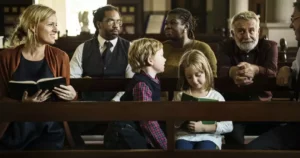
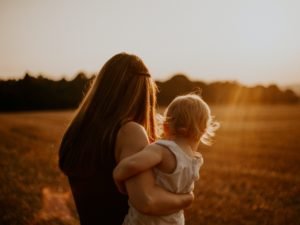
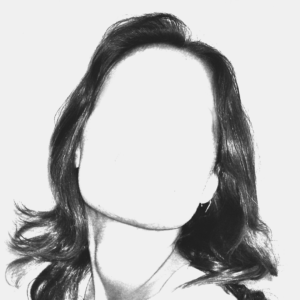
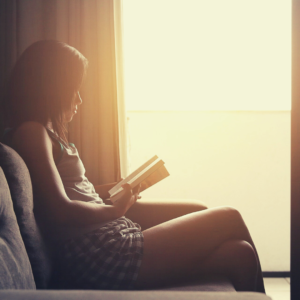
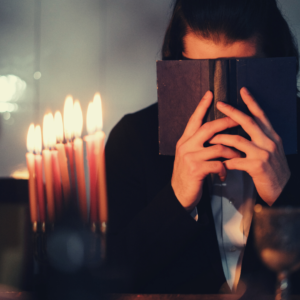
My favourite line:
If we are listening just so that we can respond to what’s been said, then we can’t say we are genuinely seeking to learn or understand.
Such a helpful article. Thanks Danielle. It’s given me food for thought.
Thanks so much, Donne. Glad you found it helpful! <3
Thanks, Donne! Glad you found this helpful ❤️
Loved this, Danielle. Thank you for sharing.
Thanks, Amy! ❤️
Wow. Just wow. This was so beautifully, honestly, openly written. I have also had some earth shattering realisations in recent weeks. I also truly believe that I treated people fairly, equally,kindly, regardless of skin colour. I have always challenged the unnecessary inclusion of a person’s skin colour on a story somebody is telling if I feel it is not an essential ingredient to the story. I have raised my children to view all skin colours as special and encouraged them to embrace diversity because I genuinely love learning about different cultures and outlooks – it’s exciting. BUT I have also been guilty of telling my husband that we need to start looking at moving out of our neighbourhood because “ours is going downhill”. Why did I say that? Because 5 years ago when we moved in our entire street was white. Now it’s probably 60% inhabited by POC. Are they bad neighbours? No. Are they friendly people? Yes! They drive the same cars we do, hold the same sort of jobs we do, send their kids to the schools ours go to. So I sat and really, really thought about those comments of mine- and it was hard. What I realise I actually meant was “honey. let’s move back to where the white people are”…AND I DIDN’T EVEN KNOW IT! I was disgusted with myself! I didn’t mean it and yet there it was. And I’m actually so grateful for this realisation (and the women who have shone a spotlight on this issue recently) because now I have more information with which to make decisions. The area I was wanting to move back into is forever being hit by waves of crime whereas in the 5 years we’ve been here we have not had a single incident. In fact, in our suburb there have been about 6 petty incidents in that whole time. And they call ours the ‘bad neighbourhood?! I’ll put that in my pipe and smoke it. Essay finished. 😉 x
Wow, Ros. Thank you for sharing! You’re right, and I think so many of us have these kinds of thoughts without even realising it. It is only when we interrogate and question why we feel a certain way or have made a certain statement that we are able to see the prejudices so deeply embedded in our thinking and beliefs. I’m glad you found the article helpful ❤️